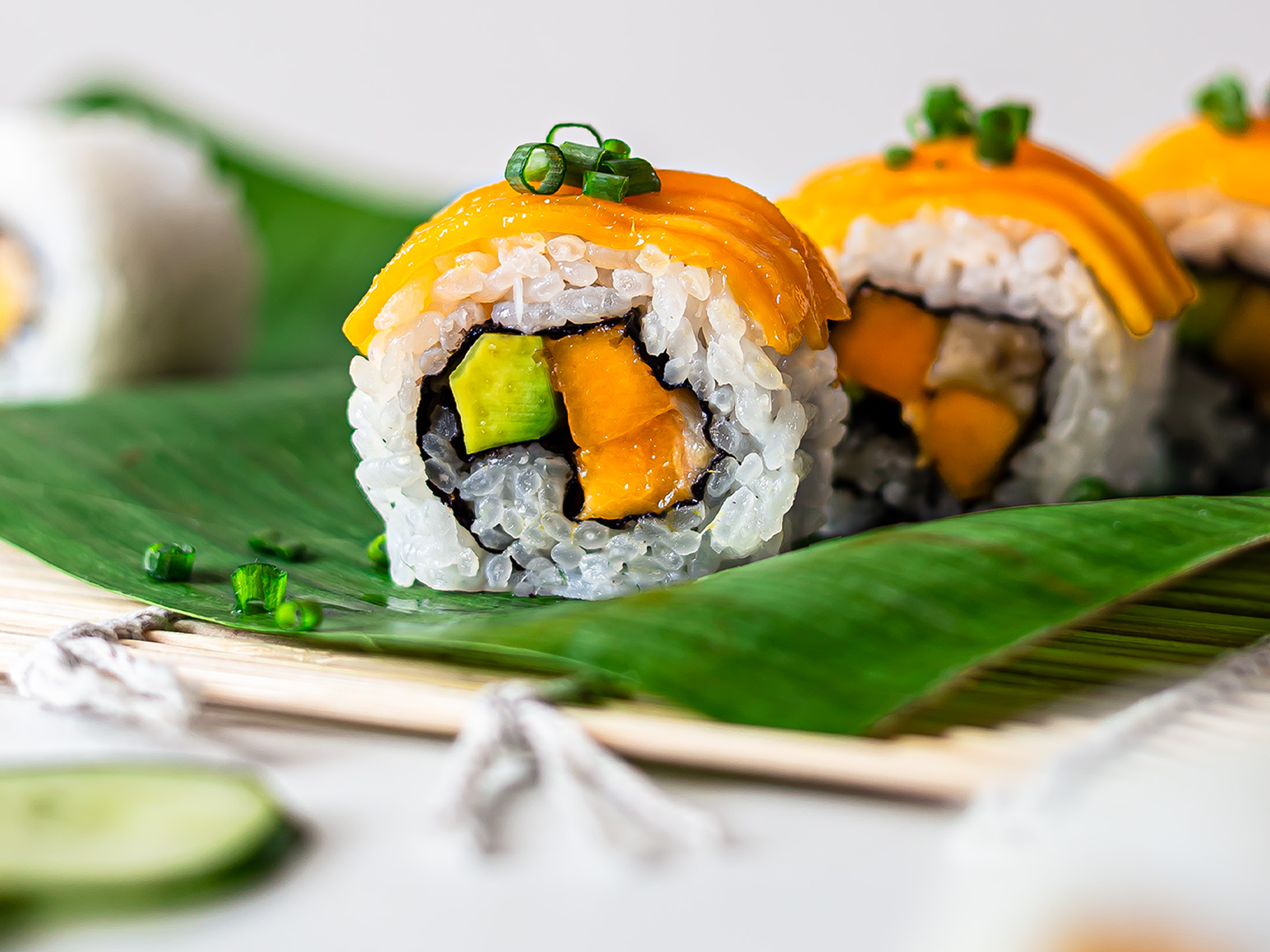If you're looking for a tasty and exciting filling for your next maki, you've come to the right place. These vegan mango sushi rolls are a sweet and exotic variation of the classic Japanese maki — a must-try for all sushi lovers!
Maki, short for the Japanese word makizushi (巻き寿司), consist of seasoned sushi rice stuffed with savoury fillings, wrapped in nori seaweed, and then sliced into bite-sized pieces.
Using mango in maki rolls has become increasingly popular, especially in "California"-style rolls. These sushi rolls have the nori sheet inside and the rice outside. They're also known as uramaki (裏巻き) in Japanese or "inside-out" rolls.
In this recipe, we paired sweet mangos with creamy avocado and soft bananas for all-fruit maki rolls. Just make sure you're using ripe fruits for maximum flavour!
Because of this delicious combo of exotic fruits, these mango rolls are perfect served at the end of a meal, as a dessert, or you can even enjoy them for breakfast.
And if you like pairing sweet and salty flavours, drizzle these mango uramaki with a little soy sauce before eating them — so good!
As for the rice, you'll need Japanese short-grain white rice, sometimes branded as "sushi" rice. Follow our instructions on how to clean it and cook it either in a rice cooker or on the hob, and then season it with rice vinegar, sugar, and salt.
Then, you'll need nori sheets. You can find these paper-thin sheets of dried and roasted seaweed at your local Asian food store, online, or at a well-stocked supermarket.
And finally, arm yourself with a bamboo mat. A bamboo sushi mat (makisu, 巻き簾) is essential to roll and shape the maki. You can find it in sushi-making sets online or at Asian stores.
Now, gather tools and ingredients and let's prepare these delicious tropical mango maki rolls together!
Ingredients
| Filling | |
| Ripe Mango | 180 g |
| Large Banana | 1/2 |
| Large Avocado | 1/2 |
| Nori Sheets | 4 |
| Sushi Rice | |
| Japanese Short-Grain Sushi Rice | 260 g |
| Water | 350 mL |
| Rice Vinegar | 40 mL |
| Salt | 1/2 tsp |
| Caster Sugar | 2 tbsp |
Step 1
For the maki rice, make sure you're using Japanese short-grain white rice, also called sushi rice.
Wash the rice in a pot of cold water, swirling it around and rubbing it with your fingers.
Then, drain it well and repeat two more times or until the water runs clear.
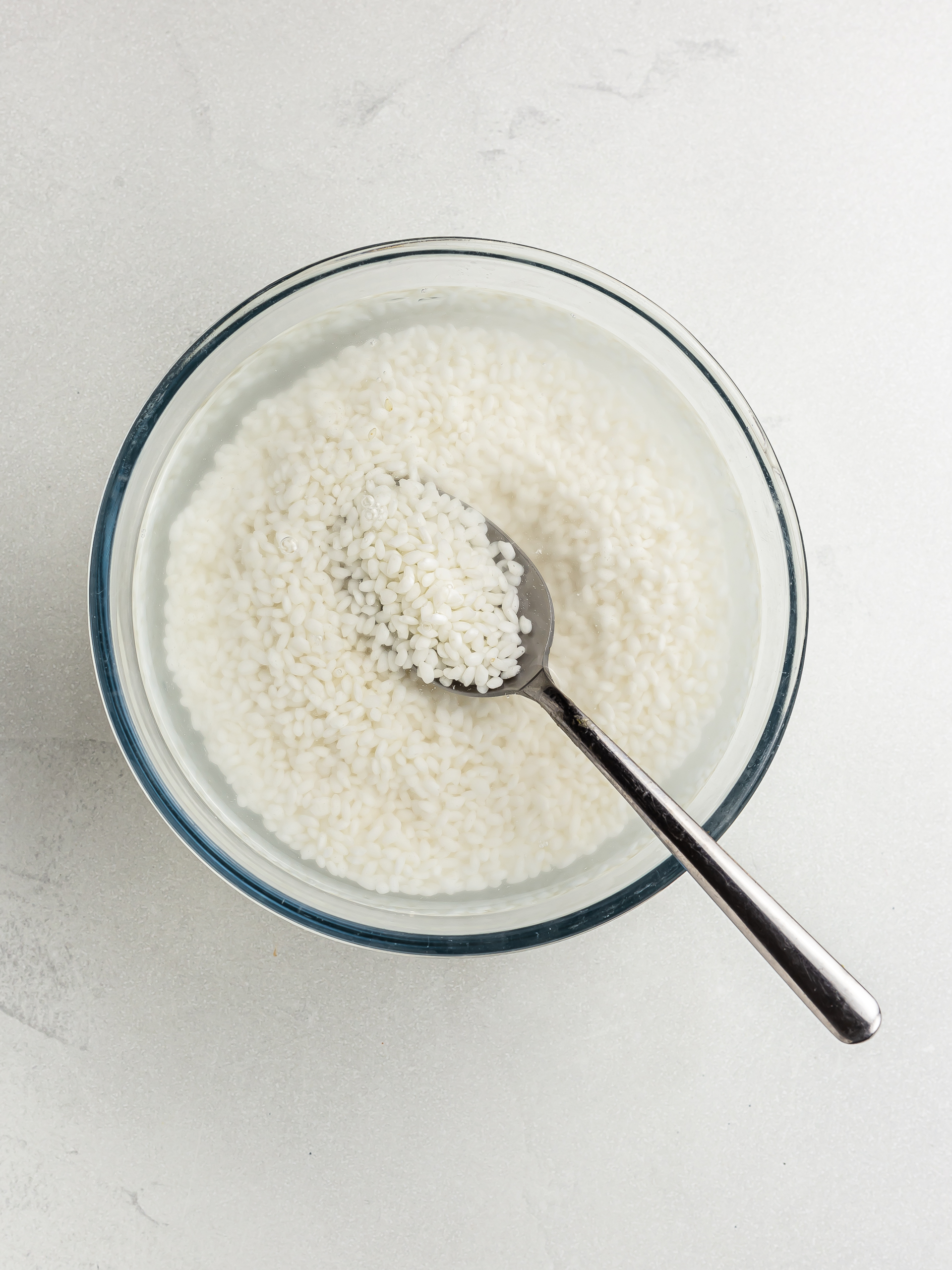
Step 2
You can cook the sushi rice in a rice cooker, following the manufacturer's instructions, or over the hob.
For this second option, add the drained rice to a pot, followed by the given water.
Cover with a tight-fitting lid and bring the water to a boil.
Once boiling, lower the heat to medium-low and simmer the rice for 8-10 minutes.
You must not open the lid or stir rice while it cooks, or it won't cook properly.
All the water should have been absorbed by the end of the cooking time. Now, take a peek, and if there's still some water left in the pot, cook the rice for a few more minutes.
Then, remove the pot from the heat and without removing the lid, let the rice finish cooking in its steam for 10 more minutes.
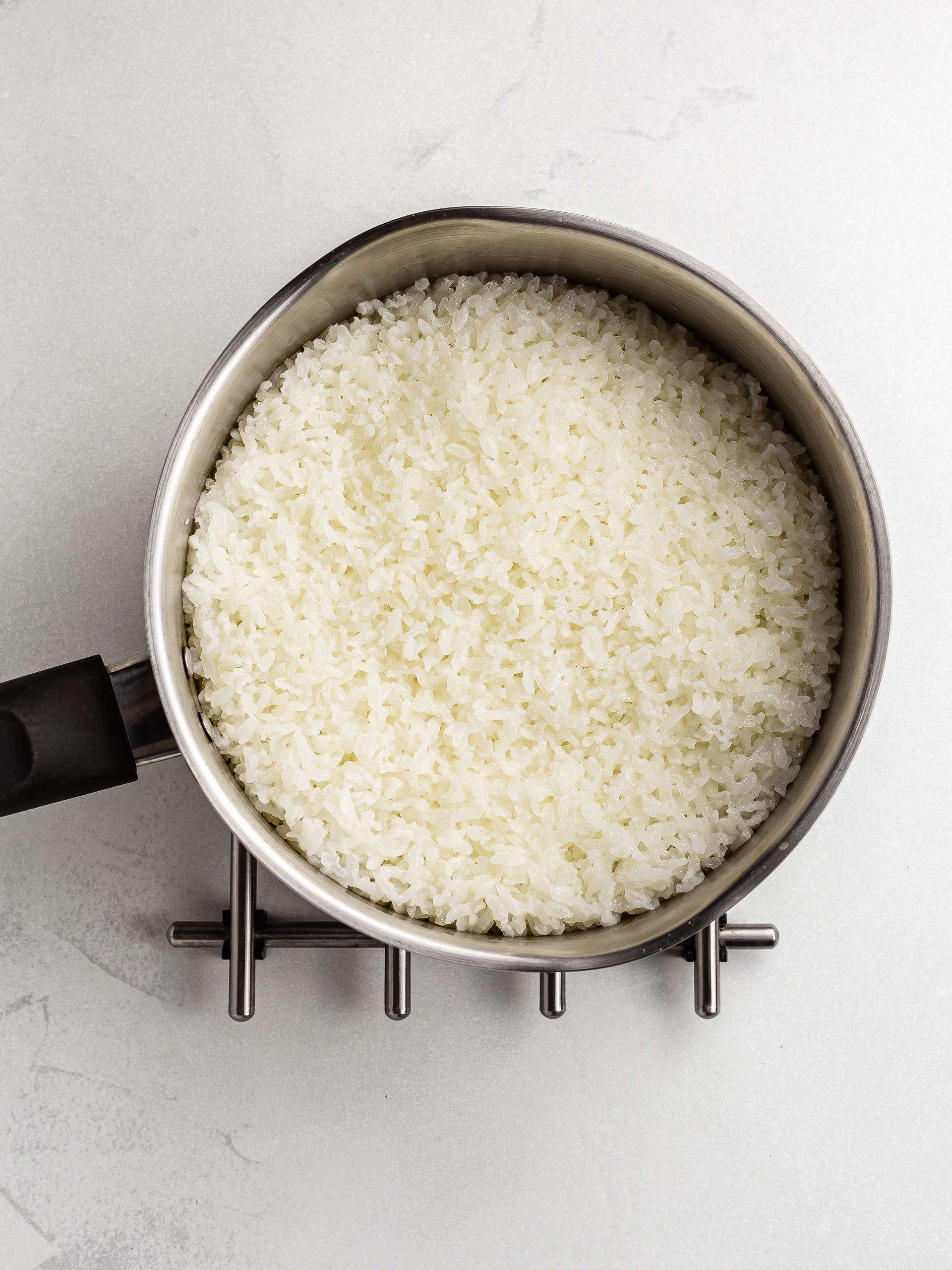
Step 3
While the rice cooks, let's prepare the filling ingredients.
Peel the mango and bananas, and peel and pit the avocado.
Slice the fruits into long strips, possibly as long as the nori sheet.
Drizzle the banana and avocado with a little lemon or lime juice to prevent them from browning.
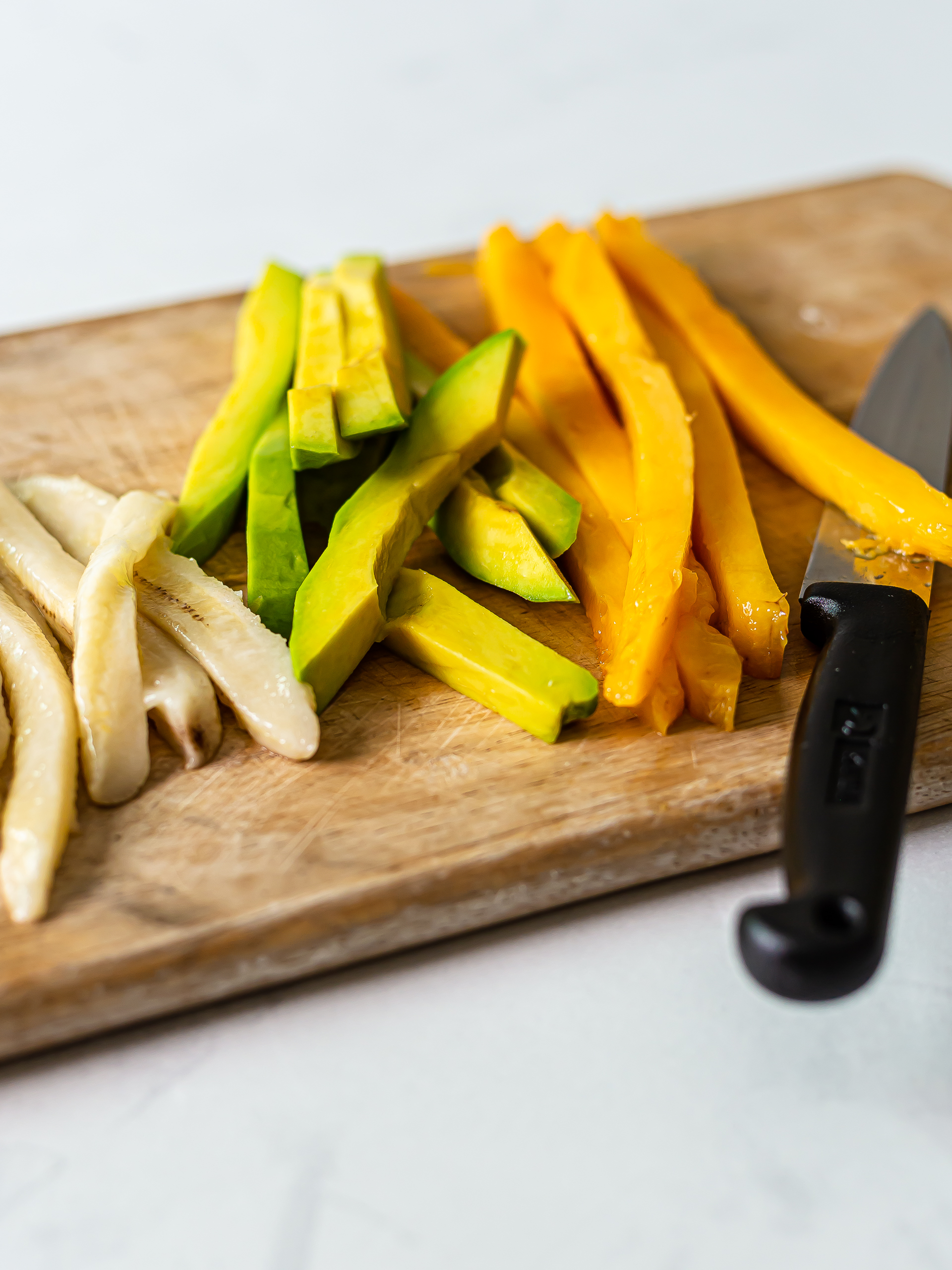
Step 4
Once cooked, transfer the sushi rice to a moistened tray, shallow pot or bowl (traditionally a bamboo rice bowl).
Mix rice vinegar, salt, and sugar in a small cup and pour the mix over the rice.
You can optionally add in toasted sesame seeds for extra flavour and crunch.
Use a spatula or a wooden sushi paddle to "slice" the rice vertically and horizontally, separating the chunks rather than mixing them.
This way, you won't damage the rice or make it mushy.
Cover the rice with a damp towel or a lid so it won't get dry, and get ready to prepare the maki rolls.
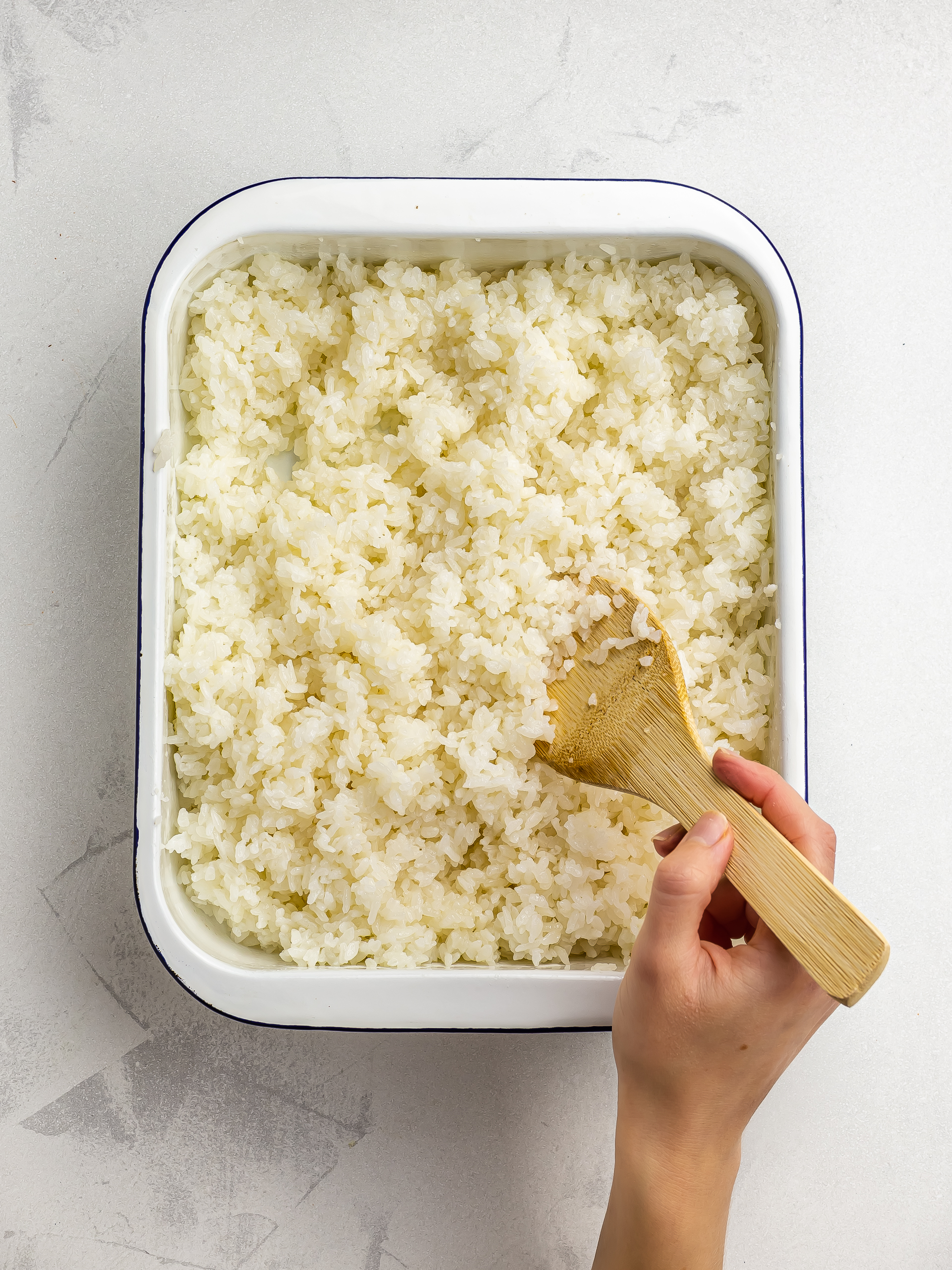
Step 5
Don't let the rice go cold. Instead, you must make the maki rolls while the rice is still warm and sticky, as they will hold together better.
Wrap your bamboo sushi mat with cling film so the rice won't stick to it.
Trim off one-third of the nori sheet and line the mat with the remaining two-thirds, rough side up (1).
You can use the trimmed nori to wrap these kombu rice balls, make vegan tuna filling for onigiri or top up this miso-marinated tofu bowl.
Before you start, submerge your hands in a bowl of cold water to avoid the rice sticking to your hands.
Measure 160g (5.6 oz) of cooked sushi rice and spread it evenly over the nori.
Compact it with your fingers and make sure you cover the whole nori all the way to the edges (2).
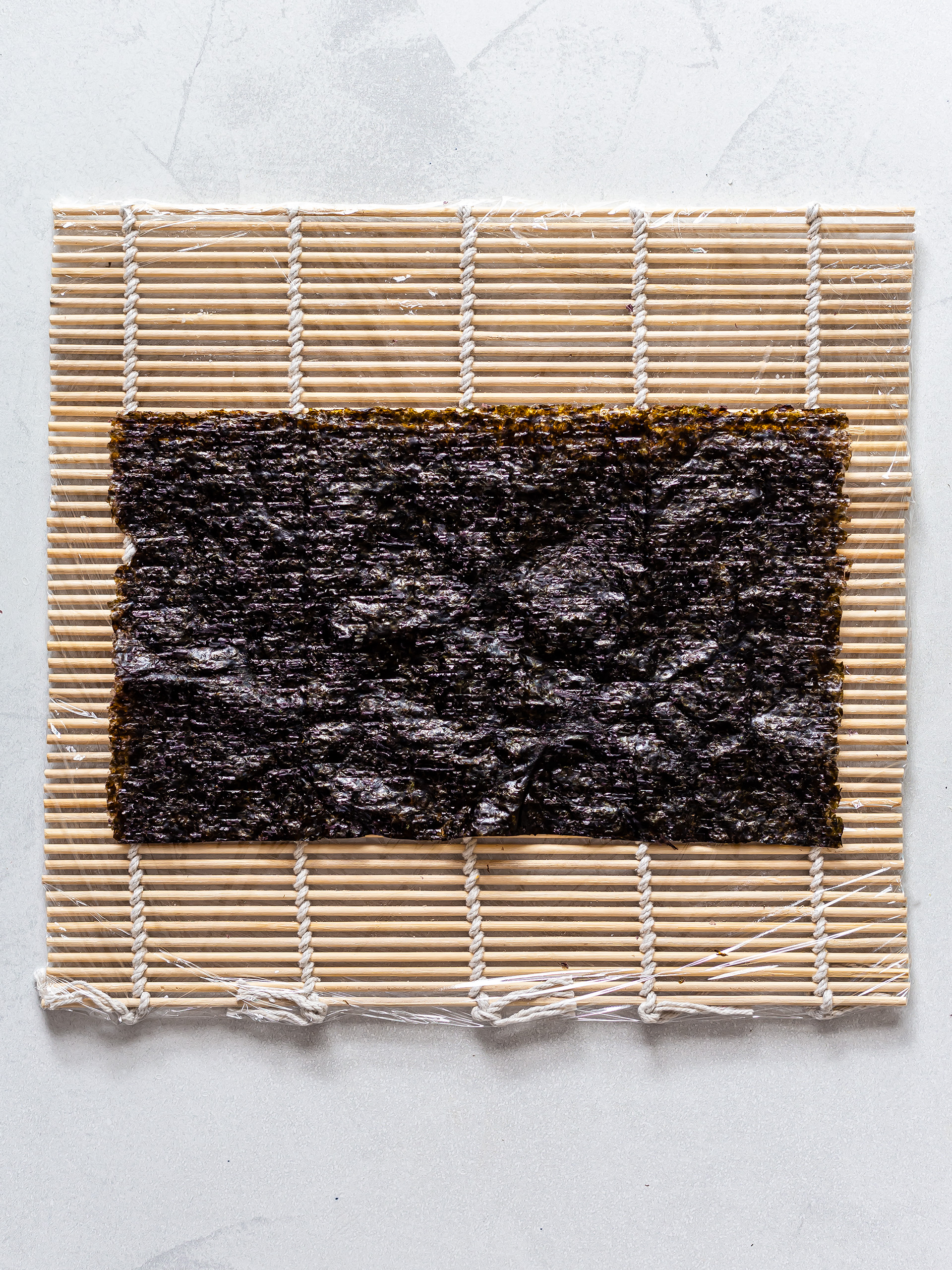
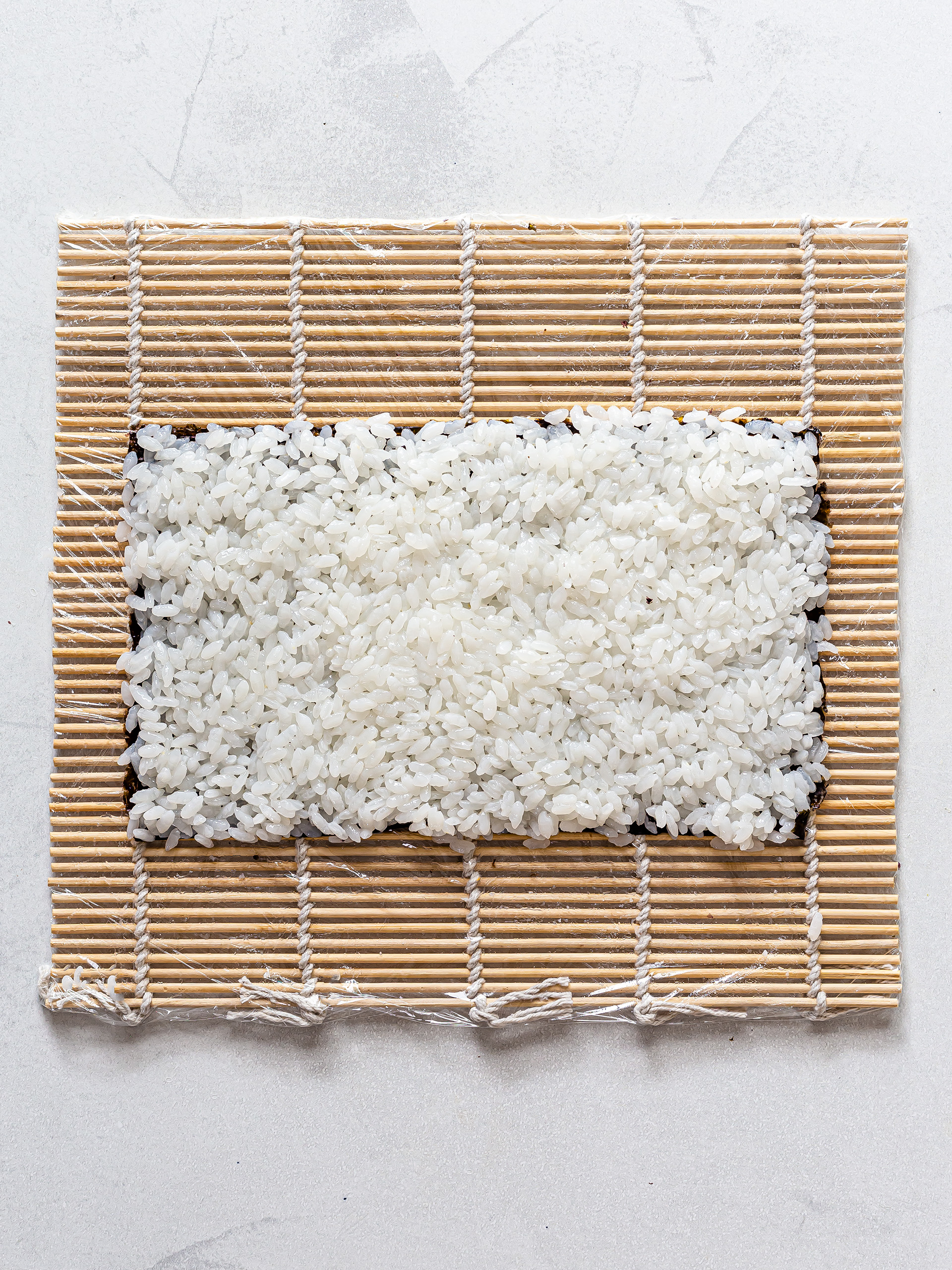
Step 6
Now, flip the nori sheet so that the rice is facing down.
Then, align the bottom of the nori with the bottom edge of the mat.
Place the filling ingredients in adjacent rows at the bottom of the nori sheet, starting with the avocado, then two rows of mango, and finally the banana.
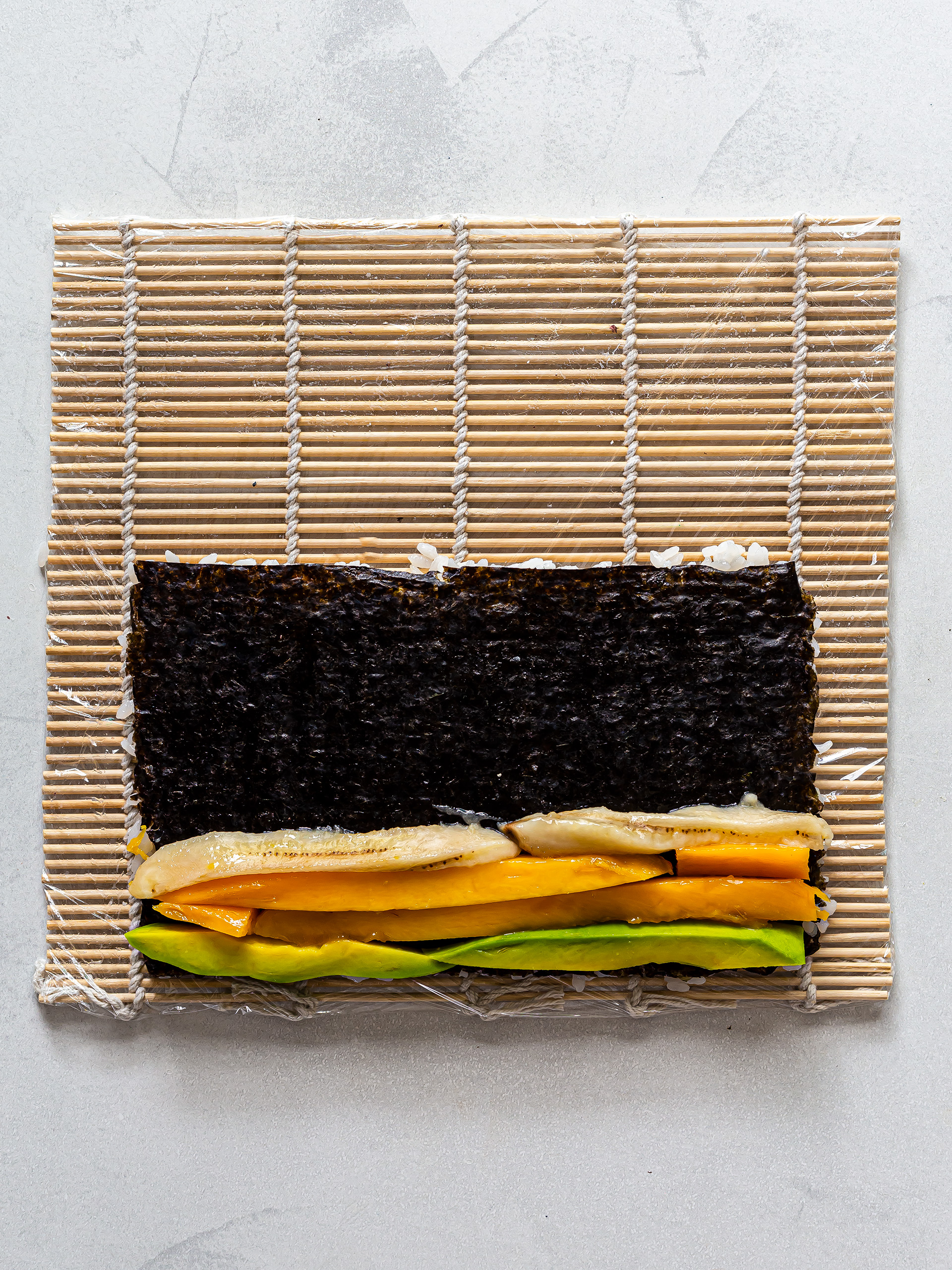
Step 7
Lift the bottom edge of the mat and firmly roll the nori and rice over the fillings to form a cylinder.
Press the cylinder evenly along its length to ensure the roll keeps its shape and ensure that the seam of the roll is sealed.
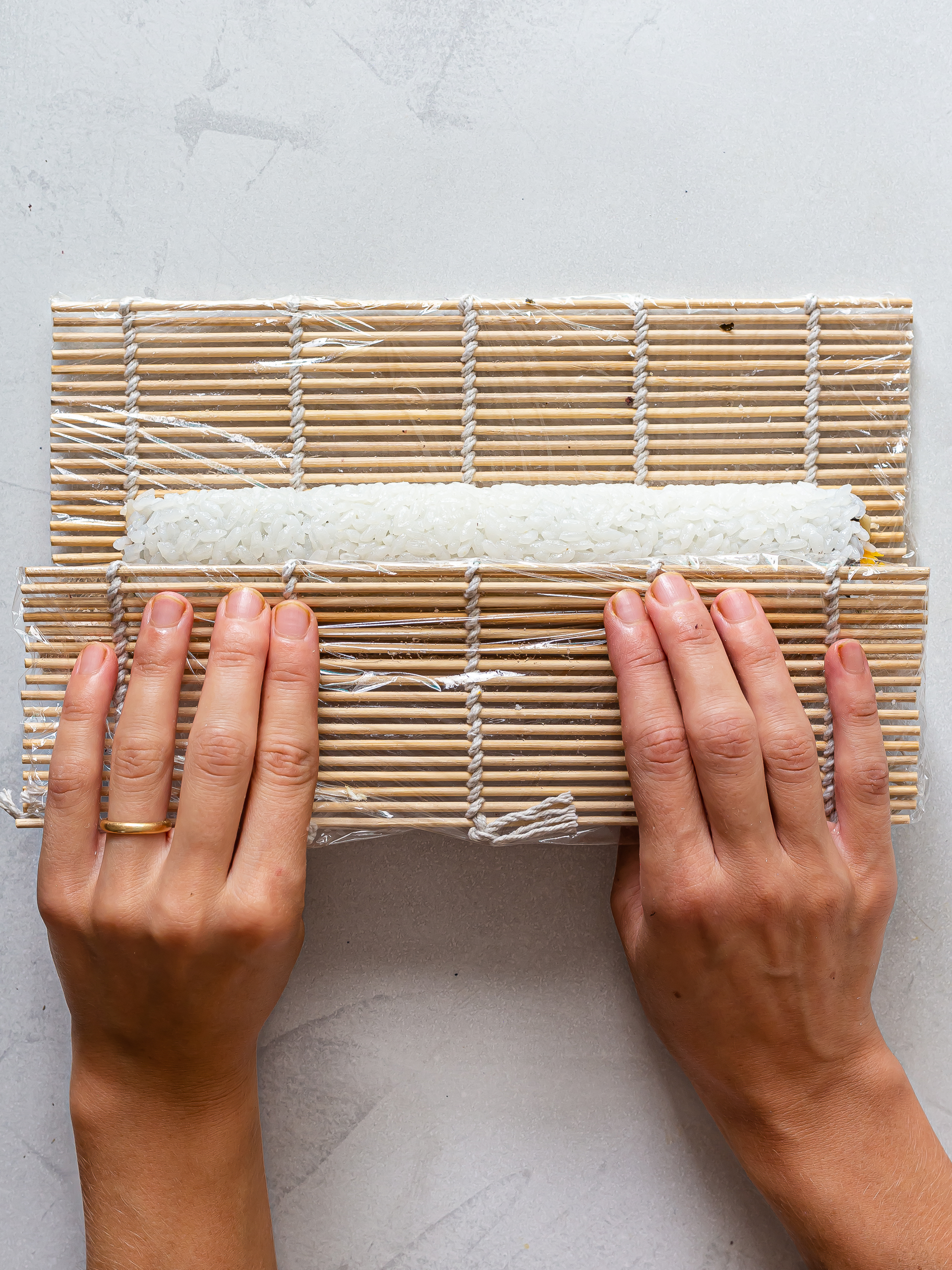
Step 8
Repeat steps 5-7 until you have used all the rice, filling, and nori sheets.
Keep the prepared rolls in the fridge to set while you work on the others.
Optionally, you can give a delicious crunchy finish to the maki, rolling them in crispy panko. See how to do it in this crunchy rolls sushi recipe.
Finally, trim off the ends of each sushi cylinder and slice it into 6 pieces.
Clean and dampen the knife between each cut for perfect slices.
Your vegan mango maki rolls are ready!
You can top them with thin slices of mango and chopped spring onions.
We recommend dipping the mango rolls in a little sauce for a delicious sweet and salty combo.
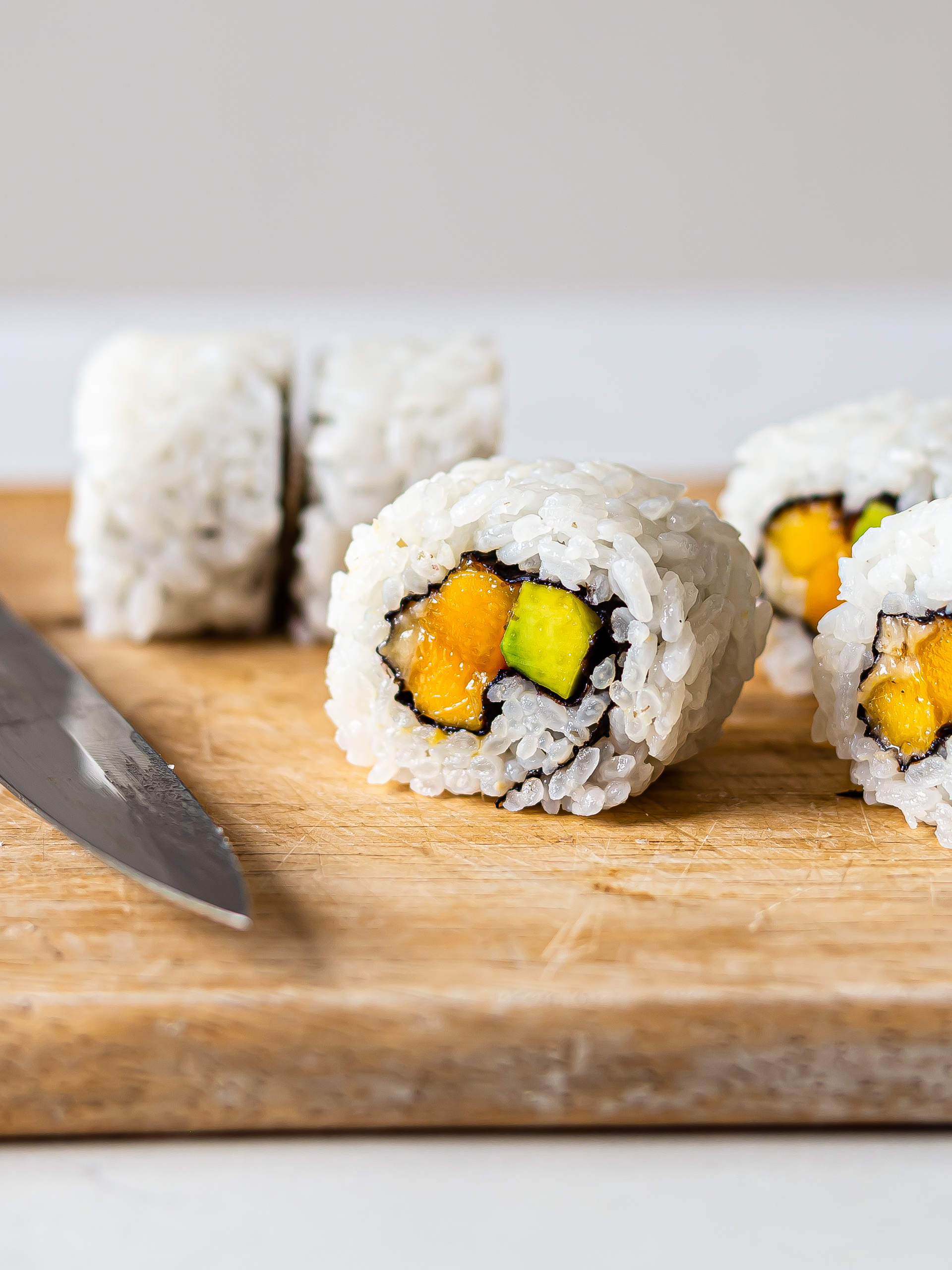
Tips
You can swap bananas with cucumber for a fresh and crunchy finish.
